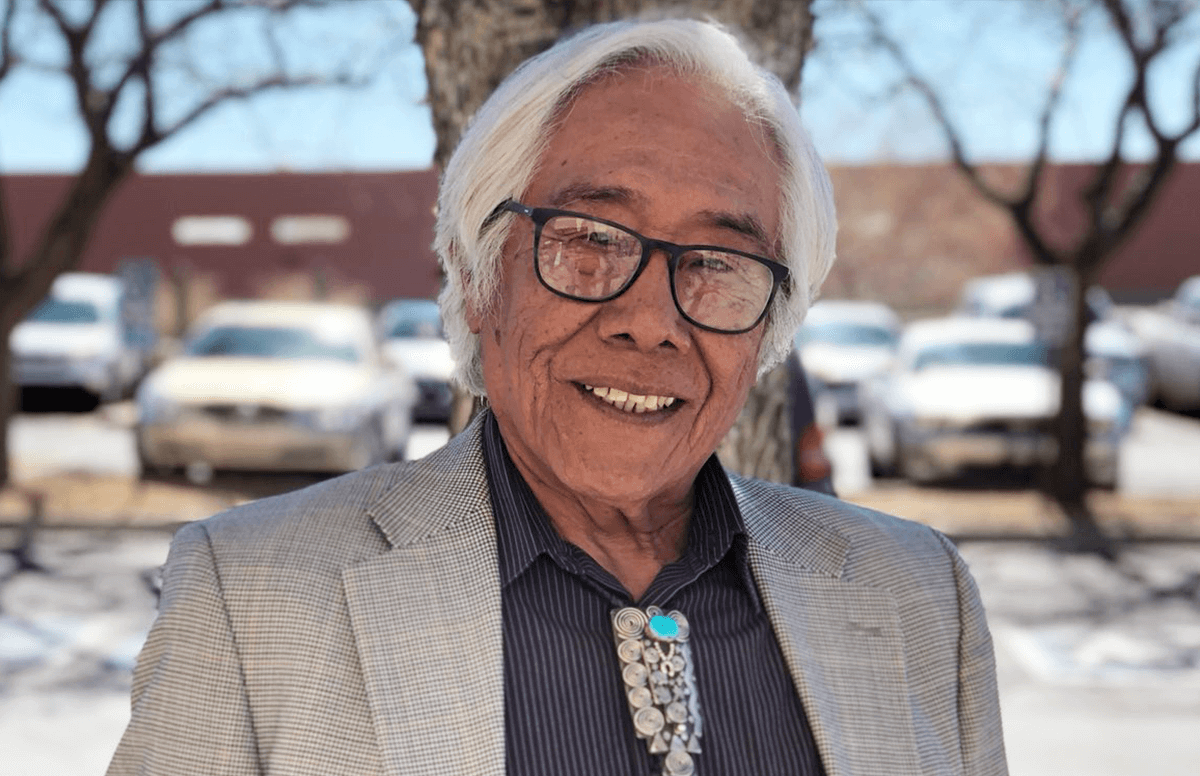
- Details
- By Native News Online Staff
Earlier this month, Native News Online talked with Larry Curley (Navajo), the executive director of the National Indian Council on Aging. He spoke with us about how his agency is striving to meet the needs of older Native Americans across Indian Country. We’re publishing our Q & A with Curley here. The discussion has been edited for content and clarity.
Native News Online: Larry, the National Indian Council on Aging has been involved with a caregiver campaign for the past couple months. What are the stories that still need to be told?
Larry Curley: I think one of the things that I'm really looking at is the Build Back Better Bill that's going through Congress right now, because a significant amount of funds that are available could be available to Indian Country, for taking care of our elders to the caretaker program or cardiac care caregivers program.
Another story that should be told is that this whole COVID pandemic that we have gone through and are still going through has really shown some glaring gaps in where Indian Country is in relationship to the rest of the country.
The infrastructure legislation that was passed and signed by President Biden should have a very significant role in getting broadband to Indian Country. The COVID pandemic really showed what a major gap there is--the inequity in terms of access to the internet and broadband. We could have done some very creative things with telehealth, telemedicine, and reducing social isolation. All of those issues have risen to the top as a result of the pandemic.
Want more Native News? Get the free daily newsletter today.
Native News Online: The Navajo Nation has been hit tremendously hard during the COVID-19 pandemic. You are originally from the Navajo Nation. How has the lack of running water and electricity impacted the elders living there?
Larry Curley: My grandparents are now gone, but I have aunts who are in their 80s and 90s still living on the Navajo Nation. I know that they are going through a tough time with the restricted travel that's out there. Now they're reimposing it, for example, here in New Mexico, the Isleta Pueblo just went on a partial lockdown again as a result of the increasing cases of COVID.
The lack of water and electricity has had an impact with my relatives on the Navajo Nation.
Native News Online: What are the COVID-19 rates of Native American elders across Indian Country?
Larry Curley: I know they're higher than the general population. The vaccine is available in Indian Country through the Indian Health Service network. The access to the vaccine is there. So, I think that's one of the reasons why the vaccination rate is higher among our population than the general population.
They're still some of those crazy conspiracy theories that are out there that some tribal members are listening to. But I think for the most part, they're listening to their relatives, to their significant others, people that matter like the medicine men, and those people are saying, “Get your booster, get your flu shot as well.”
Native News Online: You recently wrote that researchers found that caregivers of elders in Indian Country suffer from declines in physical and mental health, including depression. Please talk more about this issue.
Larry Curley: One of the things that I keep thinking about is that those individuals that are out there providing care to their loved ones. Some of them have tribal jobs, for example. And I think that one of the things that tribal governments need to begin to consider is that those people are valuable assets. They're helping our elders maintain their health by taking care of them.
Some of the things I look at is about changing the personnel policies and human resources policies at tribes to enable those caregivers to take time off without being penalized while they're taking care of their elders.
I know a lot of families have a rotation process where one member of the family will take care of grandma for a couple of weeks and then another one will come in and take care of grandma for another couple of weeks. And some of those people who weren't doing that are working, and they have jobs. And I think that a reevaluation of personnel policies at a tribal level would be very helpful in making sure that those caretakers have a break. Things like the respite care where they take a moment off, to take care of themselves.
There's a significant number of people who are depressed. They're getting sicker, they have mental health issues, anxieties, that type of mental health issues.
Giving those caretakers a break by giving them some time off is so important.
Native News Online: What resources are available for Native American caregivers?
We've been working with a group called the IA Squared, which is the International Association for Indigenous Aging. They have a program now where they can provide resources to allow those caretakers to take a break, get respite care for themselves. One of the things we do know at the National Indian Council on Aging is that in any endeavor, you can't do it alone. You have to develop partnerships and relationships, collaborative efforts with other organizations. And that's what we've been doing with IA Squared, because we know that what we do can sometimes be limited, but with a chain effort, you can have a major impact.
More Stories Like This
‘You Are Never Alone’ | How One Tribe Is Fighting Youth Suicide With Culture and Crisis Response‘Our Culture is Prevention’
This National Cancer Prevention Month, Reduce Your Risk
New Mexico Will Investigate Forced Sterilization of Native American Women
USDA Expands Aid for Lost Farming Revenue Due to 2025 Policies

